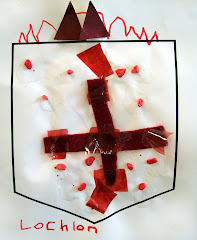How to Develop Empathy in Children …
According to
information presented at the American Psychological Association’s 122nd Annual
Convention, over 75% of books are read to preschoolers refer to the mental
states of the characters. An in-depth analysis of 90 books for 3-4 year
olds and 5-6 year olds found that mental state was referred to every three
sentences or so.
Stories for
children also tend to involve complex concepts, such as the understanding that
people sometimes have different opinions, ideas and beliefs. This is something
that develops in children from about age three. Until then, children generally
believe that all people think the same way and believe the same things as
they do. There is limited understanding that not everyone sees the world
through their eyes. Children younger than three would, for example, have
trouble understanding that some people might prefer milk over lemonade.
‘Children between the ages of 3 and 5 years old acquire a
theory-of-mind, in other words, an understanding that other people have
thoughts, beliefs and desires that may differ from their own … Around the same
ages, children also begin to understand what characters in stories are feeling
and thinking,’ – Raymond Mar, psychologist, York University, Canada.
Children who read
stories with their parents seem to be more empathetic than those who don’t. An
important factor in this is the conversation that happens between the adult and
the child during story-telling. In a recent study, Mar found that children
who were read a story about honesty acted more honestly when they were given
the opportunity to lie or cheat.
As well as
anything that can come from the words in the book, the actual experience of
sitting with a child during story-telling is also important. The discussions
that are sparked by a story, such as talking about feelings, mental states,
ideas and opinions seem to happen more during reading than at other times
during day to day life. These discussions play an important role in the
development of the child.
As well as books,
watching movies also increases performance in theory-of-mind tests. (The
understanding in children that other people might have different thoughts,
needs, motives, beliefs and intentions.) The more television a child watches
however, the worse they perform.
The exact
mechanism underlying this isn’t clear, however one theory is that as with
reading to a child, during a movie (compared to television) there is more
conversation between the parent and the child. Parents are more likely to talk
to children more about mental states. Another theory is that children have more
trouble following a television show because of the regular intrusion of
commercials.
And finally …
Everything we
experience helps to shape the way we experience the world and the way we are in
it. Stories that are fictional create a world that encourages an exploration
and experimentation with real human experiences and qualities, nurturing
empathy, one of the most beautiful of human qualities, along the way.
Emma McKenzie
Teacher - Edgerley Room
Wellbeing Facilitator
